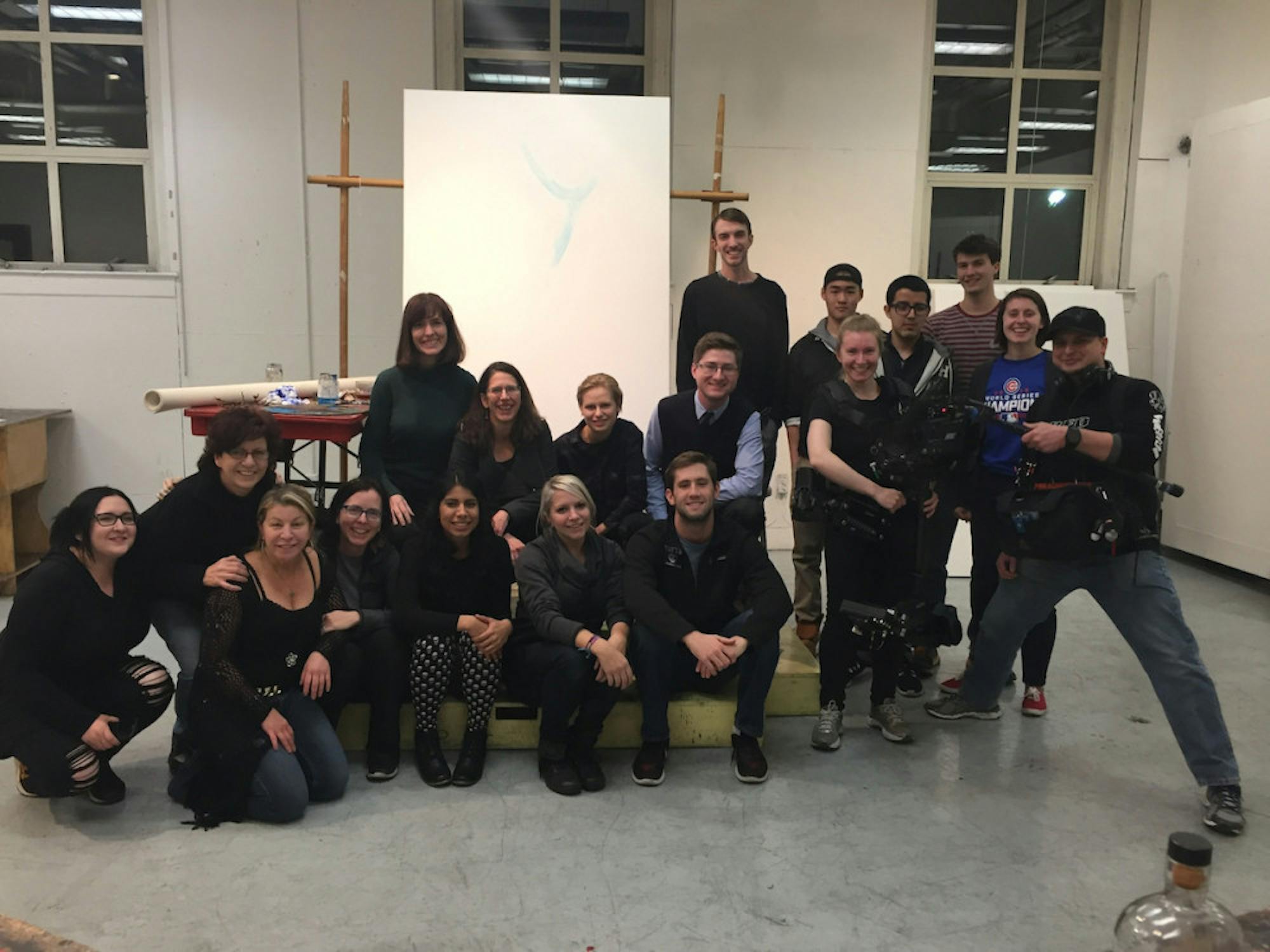The Film and Media Studies (FMS) program at Tufts might be new, having graduated its inaugural class in May, but the experiences students can cultivate within it are unique. Classes such as Producing for Film, taught by Department of Drama and Dance Professor of the Practice Jennifer Burton, provide valuable opportunities that streamline the transition from academic to professional work due in part to the partnership between students and Burton's production company Five Sisters Productions. Their most recent collaboration has been adding installments to Burton’s "Half the History” (2014-present) project.
“Half the History” was inspired by Jill Lepore’s “Book of Ages: The Life and Opinions of Jane Franklin” (2013), a biography about Benjamin Franklin’s sister, Jane Franklin Mecom. Burton was struck by how fascinating it was to find out more about the lives of female figures throughout history whose stories are often unheard. The idea of translating Lepore’s prose onto the screen enticed Burton, leading her to reach out and acquire the permission to do so.
In preparation for this production, it became clear to Burton that there was increasing potential to extend the project's work beyond a single story. This was a chance to look at the entire range of women's experiences, starting with American history. With that, "Half the History" was born.
"The idea is that we wouldn't be the only ones telling these stories," Burton said. "Hopefully, 'Half the History' will become a hub for female-focused storytelling that can have widespread participation."
In order to launch this endeavor, Burton prioritized the creation of enough content that could jumpstart the campaign.
Burton realized that the scale of these productions could be a huge learning opportunity for students taking her film classes, leading her to organize a formal partnership. By taking Producing for Film, students acquire hands-on experience on a number of professional productions.
"The class is a stepping stone to working professionally," Burton said. "A number of students have gotten jobs from the people they've met during it."
Students in the class get a taste of all stages of film production, from development to distribution. "Half the History" has provided a consistent platform for them to figure out what part of filmmaking they're most interested in.
There are currently two finished installments to "Half the History:" "Margret Lothrop and the Wayside" and "Belinda's Petition," which is about Belinda Sutton, who is considered the first freed slave to ask for reparations. The decision to tell Lothrop's story was motivated by the same factor that Sutton's was: location.
As is customary for low-budget independent filmmaking, Burton seeks to tell stories that can feasibly be produced. It often comes down to getting a proper location, since traditional production and set design can get very costly. Boston is filled with historically relevant sites that can inspire countless stories. For example, discovering that the Isaac Royall House, located a few blocks from the Medford/Somerville campus, was the place where Sutton drafted her petition made it an attractive installment to take on because it took care of location scouting.
After deciding on a historical figure to focus on, Burton brings the concept to her Producing for Film class, where students participate in the development stage. This semester, students have assisted in three separate productions for "Half the History."
The most recent addition focuses on abstract expressionists. Burton's class and company commenced production and have so far filmed at Lane Hall, Barnum Hall and the School of the Museum of Fine Arts.
In addition to working on "Half the History" as a group, students pursue individual projects and use their classmates as valuable sources for feedback.
"Every student has a passion project, and we as a class work to push it to the next step," Burton said.
Senior Emma Wold spoke to the practical application the class provides.
"More than any academic theory, [this] will prepare those of us going into the film industry after graduation," Wold said.
Junior Kyle Paul echoed this sentiment, highlighintg the skills learned through this process.
"Professor Burton has exemplified the role of a producer — bringing the necessary resources together, brainstorm[ing] ingenious ways to overcome obstacles and continuously develop[ing] other projects," he said.
Producing for Film will continue to be an enriching experience for students seeking real-life application of the skills they learn in class as FMS grows as a program. Burton hopes to continue building a bridge between academic and professional opportunities through the course and through program workshops.
Drama and Dance Professor of the Practice collaborates with students, enriches studies






